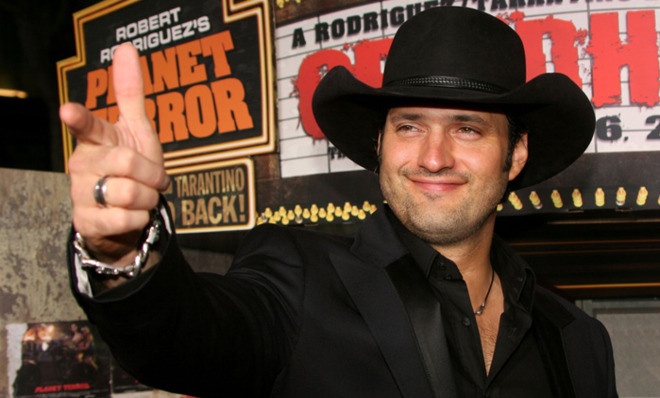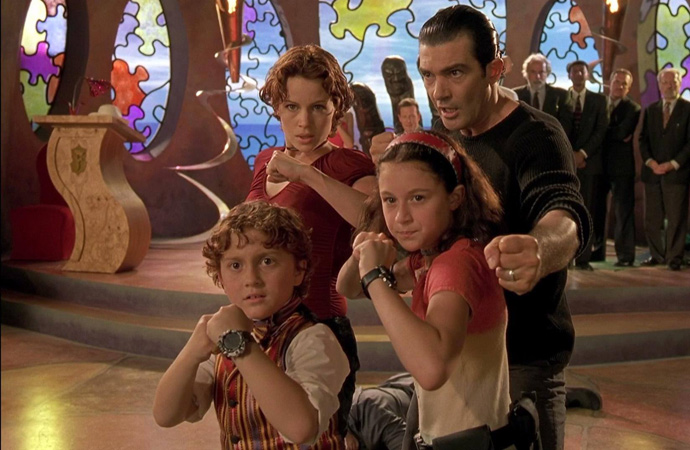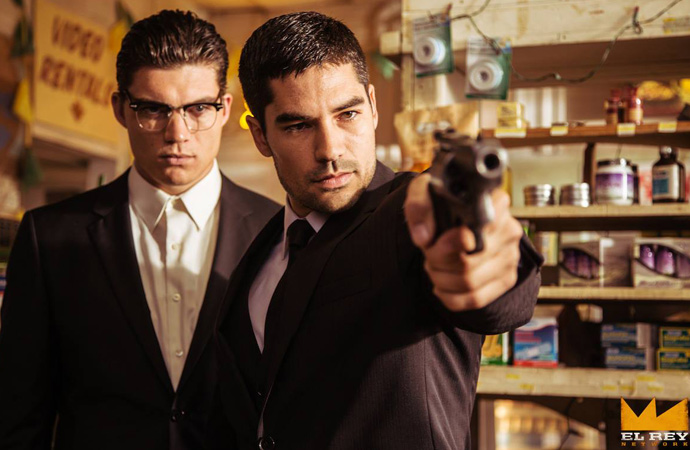El Rey: Robert Rodriguez's ambitious, flawed attempt to launch 'the people's network'
The upstart channel and its flagship original series both have problems — but they're the first step toward a more diverse TV landscape


A free daily email with the biggest news stories of the day – and the best features from TheWeek.com
You are now subscribed
Your newsletter sign-up was successful
In 1992, director Robert Rodriguez clawed his way into the film industry with the $7,000 indie movie El Mariachi, which he partially financed by serving as a human lab rat. It's been 22 years and 14 movies since then, but his latest project — an upstart TV channel called El Rey, which premiered its first original series last night — is his most ambitious yet. Whether it can live up to that ambition is another question.
In a promotional video for El Rey, Rodriguez outlined his grand vision. "I had a quest for diversity in filmmaking and in media. I have now founded the El Rey television network, which is going to be exciting, addictive, visceral entertainment — but with an eye towards keeping that diversity. Having the face of the network more resemble the face of the country. This is the people's network."
The truth, of course, is a little more modest than that. El Rey launched in December 2013, and its current collection of programming consists mainly of syndicated shows like Starsky & Hutch, Dark Angel, Miami Vice, and The X-Files — a collection that seems less like a concentrated effort to increase TV diversity and more like a grab bag of cheap content that has earned Rodriguez's stamp of approval.
The Week
Escape your echo chamber. Get the facts behind the news, plus analysis from multiple perspectives.

Sign up for The Week's Free Newsletters
From our morning news briefing to a weekly Good News Newsletter, get the best of The Week delivered directly to your inbox.
From our morning news briefing to a weekly Good News Newsletter, get the best of The Week delivered directly to your inbox.
But he is unquestionably serious about the question of diversity. At a recent event, Rodriguez explained the genesis of the idea that led to El Rey. As Rodriguez tells it, Bob and Harvey Weinstein — the producers behind his successful Spy Kids series — didn't understand why the central family was of Hispanic descent. Rodriguez was only able to make them understand by putting his idea in the context of another, more famous superspy franchise: "You don't have to be British to watch James Bond." He believes that with the right series featuring actors of Hispanic descent, he can achieve similar crossover appeal, offering new opportunities for actors and filmmakers who have been traditionally marginalized by Hollywood.

In person, Rodriguez is both enthusiastic and thoughtful about his work, and his approach to television is unconventional — but in an age of streaming content and binge-watching, it's also forward-thinking. He scoffs at the idea of a pilot season, arguing that "it's better just to do a series" than spend so much time and money on something that might never see the light of day. And he's not particularly concerned about how his projects are initially received. "You don't really care if the audience gets it first," Rodriguez explains. "You're making something for the long haul."
That belief has made Rodriguez something of a trailblazer in the film industry. It led to films like Sin City — a hyper-stylized, hyper-violent black-and-white anthology film. (Despite Rodriguez's own low expectations, Sin City was a solid theatrical hit.) It led him to experiment with 3D movie-making in 2003's Spy Kids 3-D: Game Over and 2005's The Adventures of Sharkboy and Lavagirl, which came long before major Hollywood studios saw the potential of the format. It has also led Rodriguez to a string of flops, including Grindhouse, a 2007 collaboration with Quentin Tarantino, and last year's Machete Kills.
And now, that belief has formed the backbone of El Rey, which is clearly a direct product of Rodriguez's personal and idiosyncratic interests. Rodriguez likes to tell an anecdote about an early, rudimentary attempt to make his own "television network": A continuous stream of his favorite movies and TV shows, which he played on a loop on a television at his house.
A free daily email with the biggest news stories of the day – and the best features from TheWeek.com
In its current form, El Rey doesn't seem all that different than a public version of the trick Rodriguez employed to make sure he could always watch something he liked on his TV. El Rey's official website doubles as a kind of mission statement, dividing its programming into five categories: Grindhouse, cult horror, kung fu flicks, bullets & brawlers, and badass TV. Yesterday, El Rey aired the Shaw Brothers-produced kung fu movie Executioners From Shaolin, the long-overlooked action flick Rolling Thunder, and Rodriguez's own El Mariachi; today, El Rey is showing long, uninterrupted blocks of X-Files and Starsky & Hutch reruns, along with three hours of the syndicated courtroom show Texas Justice.

But the next phase of El Rey's evolution came last night, when the network premiered its first original drama: From Dusk Till Dawn: The Series, which is based on Rodriguez's 1996 action/horror flick of the same name. Rodriguez explains that El Rey "wanted to come out swinging" with its first original drama, but it's an odd choice. The movie From Dusk Till Dawn follows a pair of bank-robbing brothers as they take shelter in a Mexican strip club that turns out to be a vampires' lair — and despite the much-maligned direct-to-DVD sequels, it is a very closed-ended story. (Glancing over Rodriguez's filmography, Sin City, Machete, and even Spy Kids seem to have far more series potential.)
The pilot was the only episode screened for critics, and it extends the original narrative while hewing very closely to its original plot. Rodriguez himself shot the pilot, and it shows. D.J. Cotrona makes for a fine small-screen facsimile of George Clooney, and — at the risk of damning with faint praise — Zane Holtz is actually an improvement on Quentin Tarantino, who co-starred in the original film. The TV show's major innovation is a second protagonist: A Texas Ranger played by Jesse Garcia, who vows to hunt the brothers down.
It all feels frustratingly familiar, and it comes alongside a heaping dose of sexism: There are four women in the pilot, and three of them are victims. It's a glaring problem, and it will only get worse if From Dusk Till Dawn: The Series doesn't address it within the first five minutes of episode two. If El Rey really wants to become "the people's network," it needs to stop being the Robert Rodriguez network — which will mean offering more than the violent genre content that makes up the vast majority of El Rey's current programming.
For all its flaws, the pilot for From Dusk Till Dawn: The Series does make good on one aspect of the promise of El Rey: It really is far more diverse than the average TV series, in a way that's both immediately apparent and immediately gratifying. It's a mission that El Rey is poised to double down on with Roberto Orci and Alex Kurtzman's Matador, a "Latino James Bond-type series" scheduled to debut in July.
In an attempt to boil down El Rey's mission statement, Rodriguez says he wanted to make "a network that was for everybody, yet had an eye for more diversity." He's halfway there.
Scott Meslow is the entertainment editor for TheWeek.com. He has written about film and television at publications including The Atlantic, POLITICO Magazine, and Vulture.



